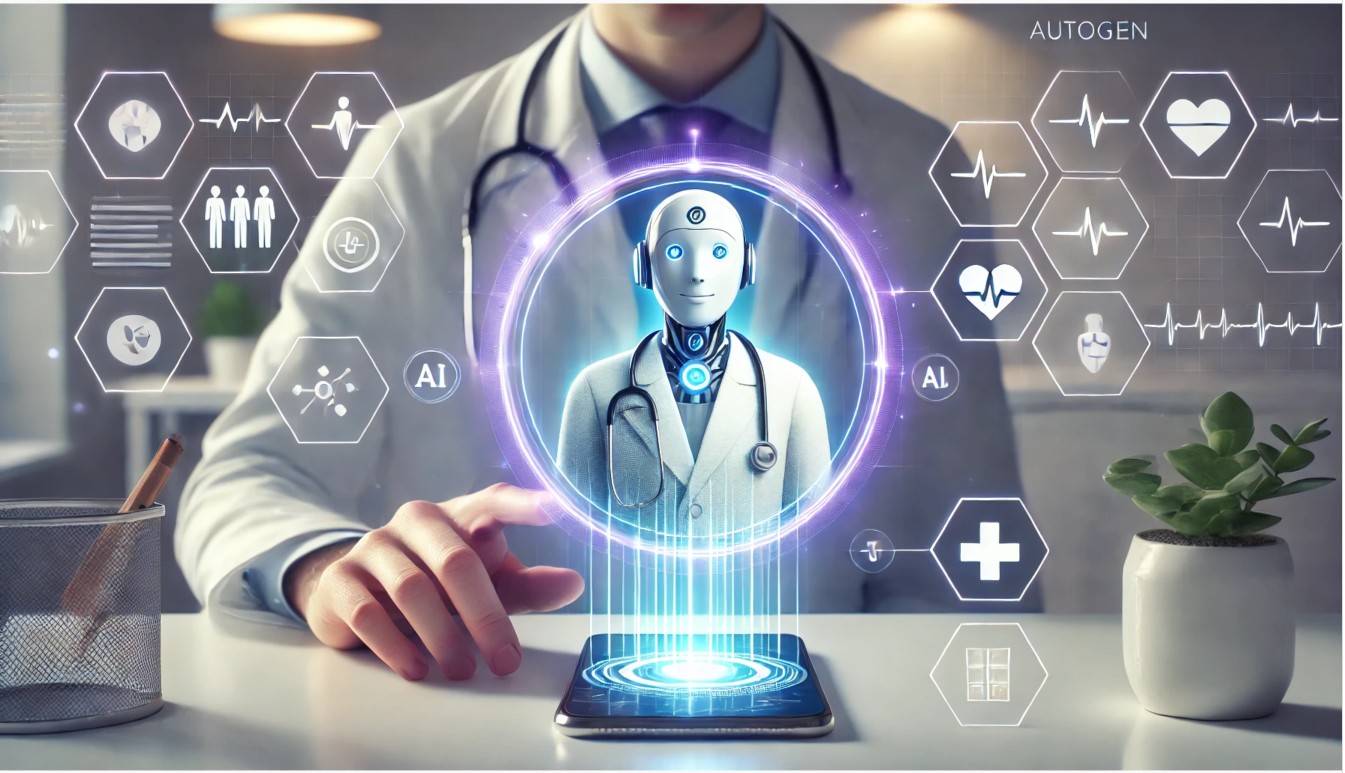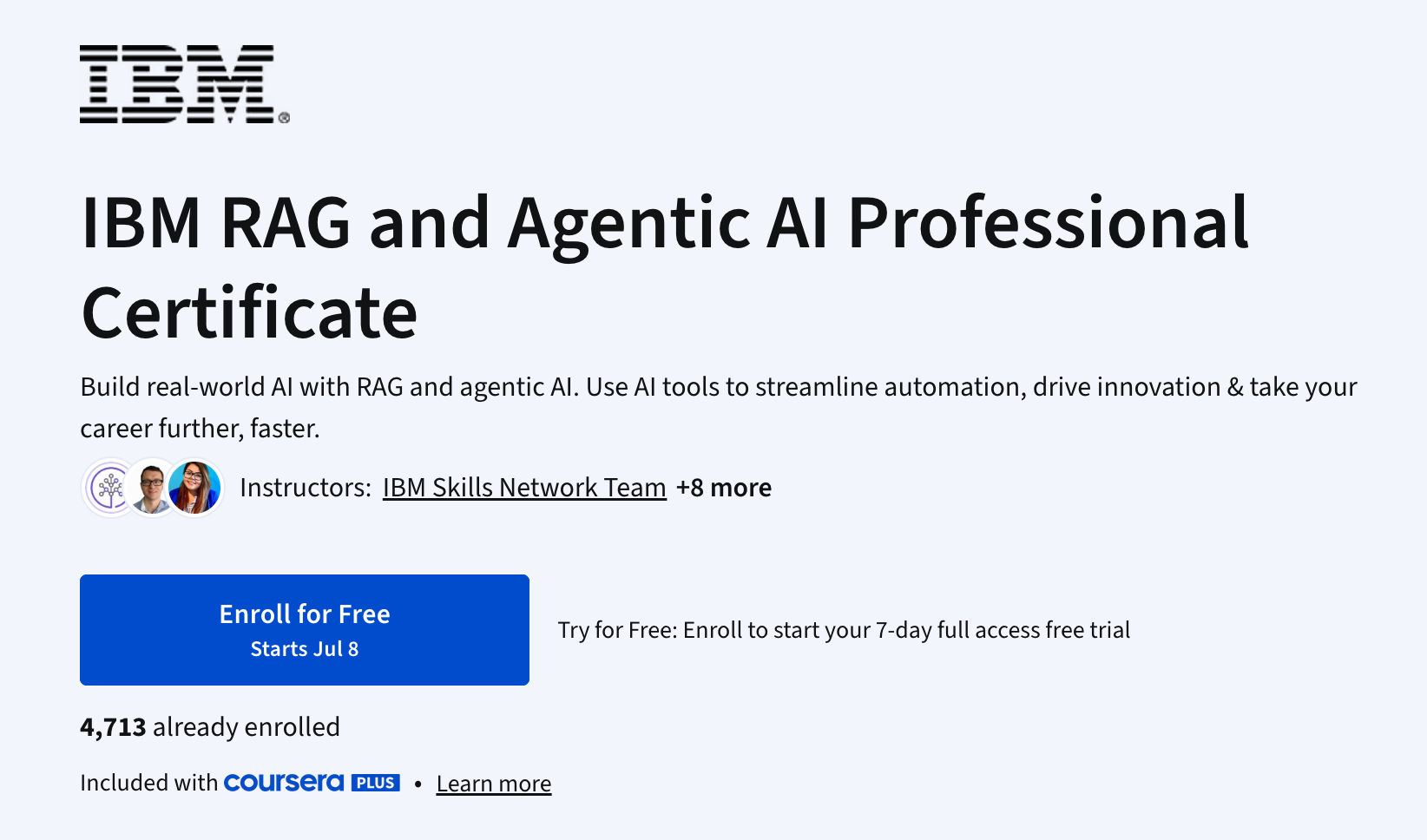Agents and agentic AI are the hottest topic in the industry. Develop agentic AI expertise through hands-on projects building multi-agent systems, agentic RAG applications, and custom tools. Begin with your first agentic application, then progress through popular agentic frameworks like CrewAI, LangGraph, AutoGen, and PydanticAI while creating real-world solutions from diet coaches to healthcare chatbots and document analysis systems.
Agentic AI represents a significant advancement in artificial intelligence, enabling systems to operate autonomously by reasoning through problems, planning solutions, and executing tasks with minimal human intervention. This approach is particularly valuable for applications requiring complex decision-making, multi-step problem solving, and dynamic adaptation to changing conditions.
This learning path provides a structured introduction to building agentic AI systems through practical application development. You'll work with established frameworks including CrewAI, LangGraph, AutoGen, and PydanticAI to create multi-agent systems that can collaborate, reason, and execute complex workflows. Each project is designed to build upon previous concepts while introducing new tools and techniques, ensuring a comprehensive understanding of both foundational principles and advanced implementation strategies.
The curriculum emphasizes hands-on development, guiding you through the creation of real-world applications across diverse domains including healthcare, customer support, content analysis, and document processing. This practical approach ensures that theoretical concepts are immediately applied and reinforced through working implementations.
Course: Introduction to Agentic AI
- Objective: Learn what AI agents are, how they function, and why they are shaping the future of technology
- Skills Covered: Artificial Intelligence, Agentic AI, AI Agent, Generative AI, LLM
Project: Agentic AI - Multi-Agent App with CrewAI and Gradio
- Objective: Build a multi-agent application that processes food images and generates personalized recipes
- Skills Covered: Multi-agent coordination, computer vision integration, CrewAI framework, and Gradio interface development
Project: CrewAI 101: Building Multi-Agent AI Systems
- Objective: Develop sophisticated AI systems that transform workflow automation
- Skills Covered: AI Agents, CrewAI, Generative AI, LLM, Python
Project: How to Build - AI Math Assistant with LangChain Tool Calling
- Objective: Build a custom AI math assistant that performs precise calculations
- Skills Covered: AI Agent, Function Calling, Generative AI, LangChain, LLM, Tool Calling
Project: Build and Execute Custom Tools for LLMs
- Objective: Develop specialized functions that enable LLMs to interact with external services and data sources
- Skills Covered: Tool creation, function calling, API integration, and LLM orchestration
Project: Simple ReAct Agent from Scratch
- Objective: Implement the ReAct (Reasoning + Acting) framework to create agents that think through problems step-by-step
- Skills Covered: Structured reasoning, adaptive problem-solving, and tool usage coordination
Project: Agentic AI Workflow Design Patterns with LangGraph
- Objective: Master core design patterns for building sophisticated multi-agent workflows
- Skills Covered: Sequential coordination, intent-based routing, parallel execution, and LangGraph implementation
Project: MultiAgent Healthcare Chatbot with AG2
- Objective: Build collaborative AI agents for medical treatment recommendations using AutoGen framework
- Skills Covered: Multi-agent collaboration, healthcare domain application, and AutoGen coordination
Project: Customer Support Agent with PydanticAI
- Objective: Create schema-driven agents for structured customer support interactions
- Skills Covered: Schema validation, PydanticAI framework, and customer service automation
Project: Document Chat via Agentic RAG
- Objective: Develop an advanced document analysis system using multi-agent architecture and self-correction
- Skills Covered: Agentic RAG, LangGraph workflows, Docling integration, and adaptive information retrieval
By completing this learning path, you'll develop practical skills in building autonomous AI systems that can reason, collaborate, and execute complex tasks. The projects focus on real-world applications and industry-standard frameworks, providing you with immediately applicable knowledge in multi-agent system design, workflow orchestration, and intelligent automation.
This structured approach to agentic AI development prepares you to tackle challenges in various domains, from healthcare and customer service to content analysis and document processing. The combination of theoretical understanding and hands-on implementation ensures you'll be well-equipped to design and deploy sophisticated AI solutions in professional environments.










